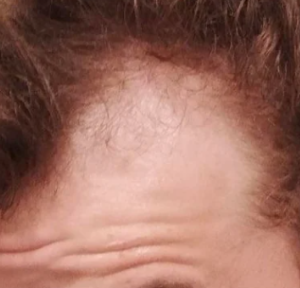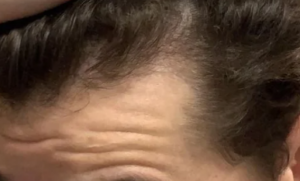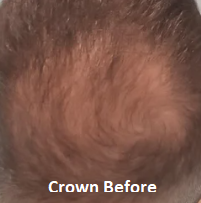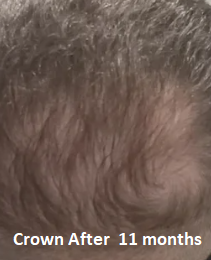My son who is 21 completed a 4 cycle chemo treatment in May 05. Today his hair is still very thin, fine and spots of balding. I have left a message today with his doctor for some advise when I saw your web page. Any suggestions? I know hair growth takes a while but it is going on 10 months now. Thanks!
Hair loss during and after chemotherapy is one of the most distressing side effects. Hair loss occurs because chemotherapy targets all living cells in the body including hair follicle cells. Simply put, chemotherapy is poison to all living cells. It is a medical balancing game where the cancer cells are killed before the chemotherapy kills you.
Hair follicle cells have three phases of growth:
- Growth phase (Anagen phase) which lasts anywhere from 2 to 6 years. This is the phase where your hair is actively growing at approximately 10cm per year. 85% of hair is at this phase at any given time.
- Transitional phase (Catagen phase) which lasts about 2 weeks. This is the phase where the hair follicle shrinks and prepares to enter the resting phase.
- Resting phase (Telogen phase) which lasts about 1- 2 months. This is the phase where hair does not grow but stays attached to the follicle. Some hairs are shed at this phase, but at the end the hair follicle re-enters the growth phase to start the cycle over again. 10-15% of hairs are at this phase at any given time.
During chemotherapy, hair in the growth phase is most affected due to the active nature of the hair follicle. Ideally, hair lost during chemotherapy should start to grow after 3 to 6 months. Unfortunately, new hair may grow thinner, slower, or with different texture or color.
Your son’s hair growth seems to be returing, but at a much slower rate than you have anticipated. This may be due to the 4 cycles of chemotherapy. This may also be due to the fact that your son’s body is recovering at a different rate than expected. It may just be a normal recovery pace for your son. Ultimately, if your son is healthy and is in remission, that is the most important priority. Neverthess, hair loss is certainly the most visible and distressing side effect of chemotherapy and a stigmata of cancer. There are a number of support groups and wigs available to chemotherapy patients, which are sometimes even covered by insurance companies. Finally, topical creams or Propecia would not be of benefit for hair loss from chemotherapy.
By Dr. Jae Pak and Dr. William Rassman
[Note: This blog entry has been answered by Dr. Jae Pak, who has been working with Dr. Rassman for the past 9 years developing new surgical instruments and hair transplant procedures.]





 You probably should have started Propecia (finasteride 1mg) when the hair loss process began, instead of minoxidil. Young men can reverse hair loss on finasteride, but without trying it, you will not know. At the least, the process can be slowed or stopped with finasteride.
You probably should have started Propecia (finasteride 1mg) when the hair loss process began, instead of minoxidil. Young men can reverse hair loss on finasteride, but without trying it, you will not know. At the least, the process can be slowed or stopped with finasteride.